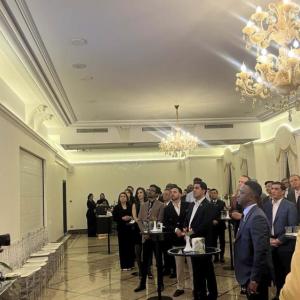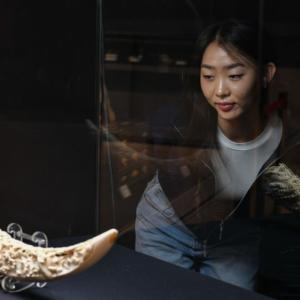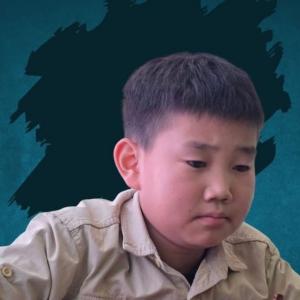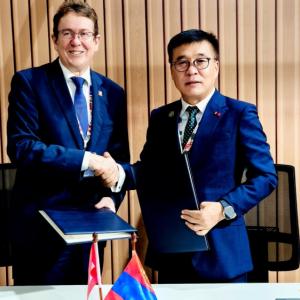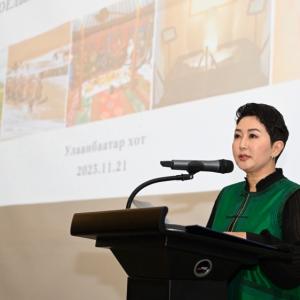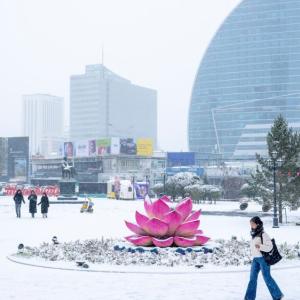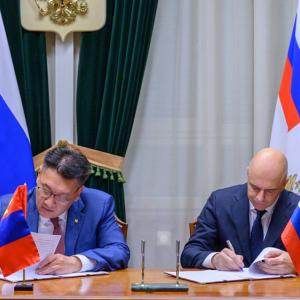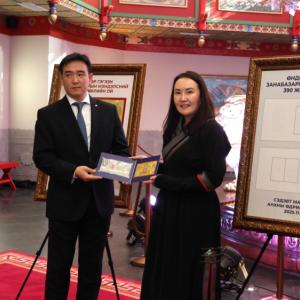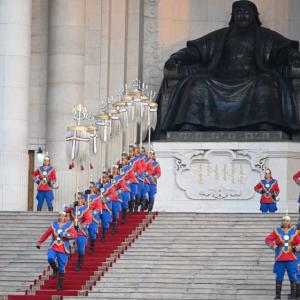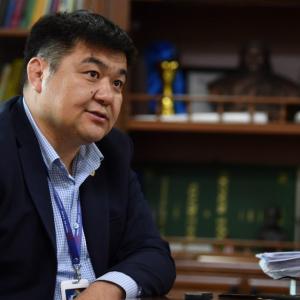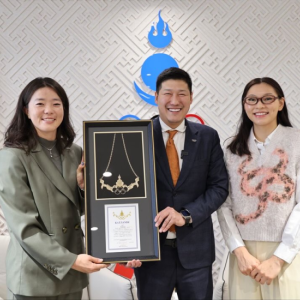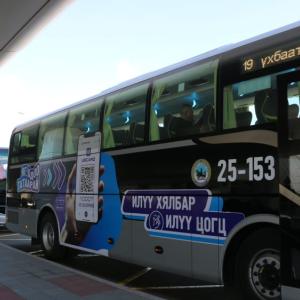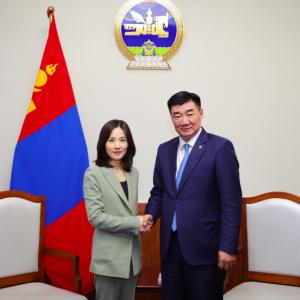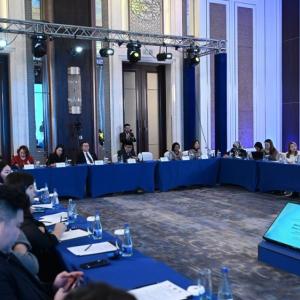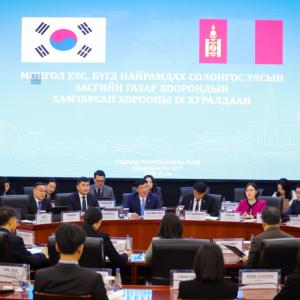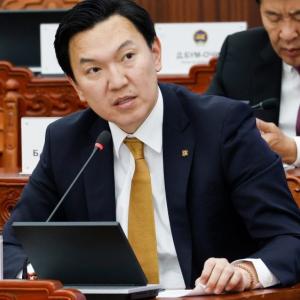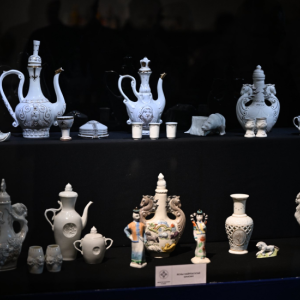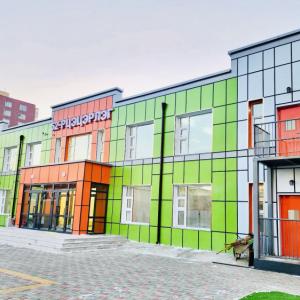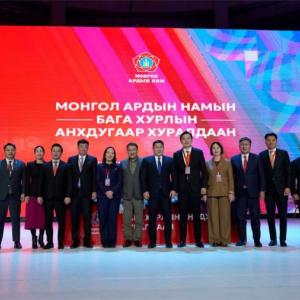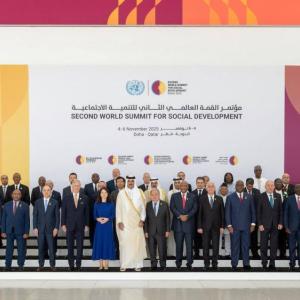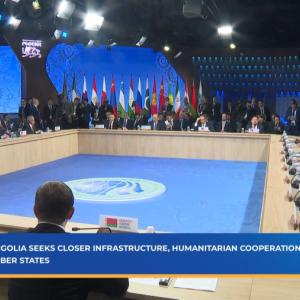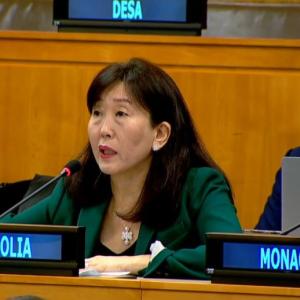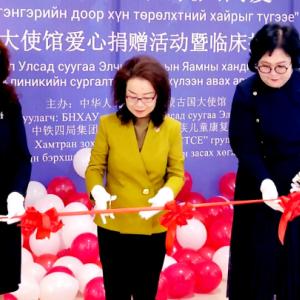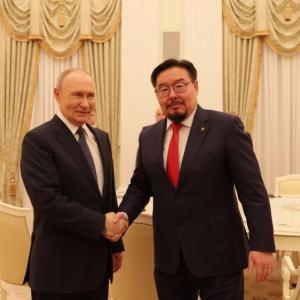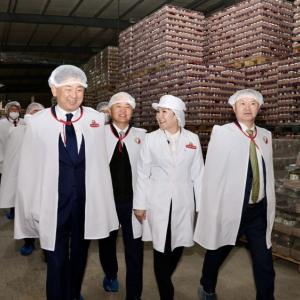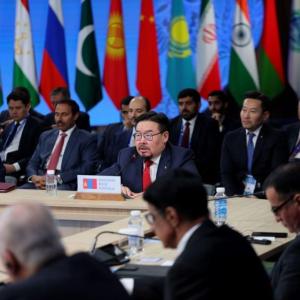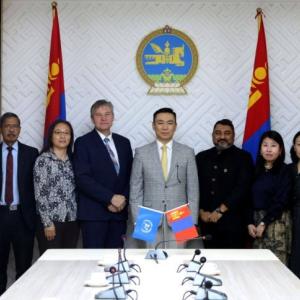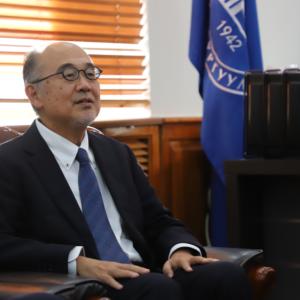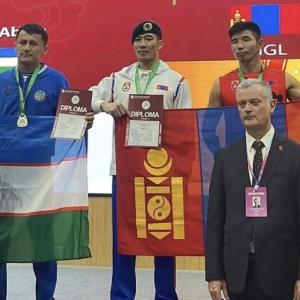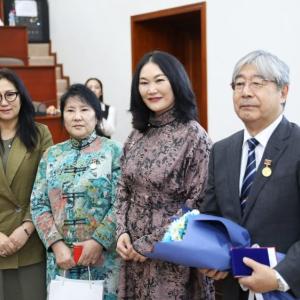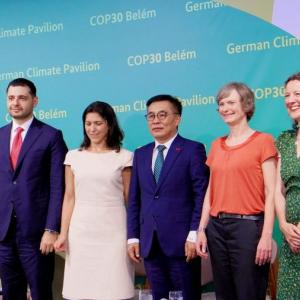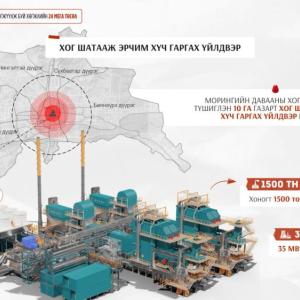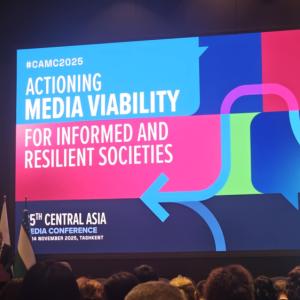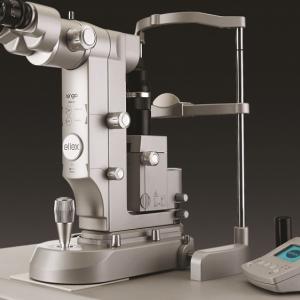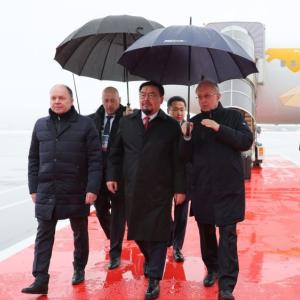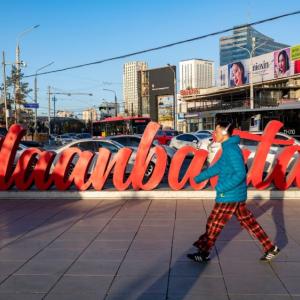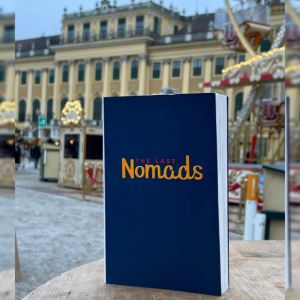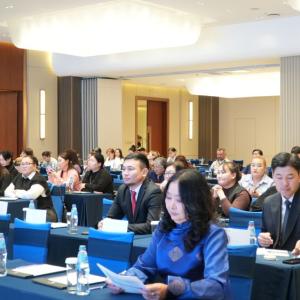National Committee on Reduction of Air Pollution meets
The Mongol MessengerUlaanbaatar ranks 47th among the most polluted 50 cities in the world, reported Mongolian Minister for Environment and Tourism D.Oyunkhorol at the first meeting of National Committee on Reduction of Air Pollution which was formed by an ordinance of Prime Minister of Mongolia.
With Ulaanbaatar residents left with only defense – pollution masks against the thick smoke hovering over the city, the Government isn’t just sitting by. Number of measures are taken every year to reduce, and ultimately tackle air pollution in Ulaanbaatar, home to over 1 million people. The new Cabinet’s latest move was the establishment of the National Committee on Reduction of Air Pollution a structure of which was recently approved.
At the first meeting of the Committee held on December 1, the Prime Minister, Director and members of the Committee and representatives of the Ministry of Mining and Heavy Industry, public organizations and project teams were in attendance. Opening the meeting, Prime Minister J.Erdenebat said, “It’s crucial to take solid measures against air pollution, and steadily realize them. Specific measures such as promoting renewable energy consumption, providing electricity bonus to households using electric heat at night, promoting import and consumption of good-quality fuel and converting public transportation into fuel gas will be taken, and matters will be solved on policy level”.
“Mongolia isn’t the only country threatened by air pollution, the world is looking at this problem”, noted D.Oyunkhorol, Minister of Environment and Tourism. After revealing the capital city’s ranking, the Minister said, “Corresponding organizations are reporting that the number of respiratory disease was 647 in 10 thousand people in 2005, but increased to 1730 in 2015. We are confronted by an imperative need to improvise our strategies on air pollution, and take decisive measures”, she said.
The Committee meeting discussed the current indexes of air pollution, past measures taken to tackle the issue, and future directions, and the corresponding Ministries were assigned to draft and propose a document on future measures against air pollution. In compliance with the Law on Air pollution charge, around Tgs 30 billion is collected per year to State budget, but the money is spent for other purposes. However this year, Tgs 5 million has been allocated for reducing the air pollution. The allocated budget will be spent on assuring reliable electricity supply in areas included for air quality enhancement, zero-rating night-time electricity usage and providing households in ger area with improved stove and compressed wood logs.
UNICEF launches a report concerning children’s health
According to http://www.ub-air.info, air quality monitoring website operated by Air Quality Department, Capital city, the level of fine particulate matter (PM2.5) in certain areas of the city ranged from 201-552 microgram per cubic meter on the night of December 6, with Bayankhoshuu ger area being the most heavily polluted, and Nisekh being the least hazed. It is a well-acknowledged fact that major factor for air pollution in the capital city is ger district, and unsurprisingly, Bayankhoshuu residents are suffering the most from air pollution.
Though air pollution isn’t a year-round problem for Ulaanbaatar, and people only remember the unescapable dirty air when it actually hits them every winter, public awareness on the hot issue is getting stronger and broader every year. It’s crucial for the people of Ulaanbaatar to realize that air pollution is more than just a dirty smoke we are stuck with during winter.
As such, an awareness raising report was launched to help people understand the extents of dangers the pollution poses to our health, especially for children. Produced by UNICEF together with Mongolia’s Public Health Institute and the Association of Public Health Professionals, the report titled ‘Understanding and addressing the impact of air pollution on children’s health in Mongolia’ was launched on December 7.
“Children - who typically breathe at twice the rate of adults - face a serious risk of respiratory disease in Mongolia, and particularly here in Ulaanbaatar, when exposed to polluted air. Pneumonia is the second largest cause of infant and under-five mortality in Mongolia, accounting for 15 per cent of infant deaths and it is strongly aggravated by exposure to air pollution. We cannot wait any longer” said UNICEF Mongolia Representative Roberto Benes in his opening statement. “Current exposures of children to air pollution have not been experienced by previous generations and there is concrete risk of suffering from unprecedented levels of chronic respiratory disease later in life. The Government has increased its efforts to tackle air pollution, but we need join forces with a sense of urgency in order to protect our children from what is a veritable silent killer”, he said to high level Government officials, international and national partners, private sector and media present at the launch event.
The experts involved in preparing the report identified a set of integrated policy approaches and concrete actions that could reduce illnesses and mortality among children including implementation of the most cost effective clean energy option and introduction of pneumonia vaccines among others.
Chosen as the UNICEF Ambassador for Reduction of Air Pollution, State Prize Laureate, singer D.Bold was present at the event, and said, “It’s my duty as a father, not just a singer, to make contribution to tackling air pollution. I am a father of three. Suffering from air pollution, my children always catch cold showing allergic symptoms in winter, and we always turn to doctors. I think there are many parents like us”. It wouldn’t be very wrong to say that his opinion is universally shared by every parent raising a kid in Ulaanbaatar.
Mongolia’s long winter leaves the capital city in gray haze for at least 3 full months. As weather forecasts indicate how this winter is going to be extremely cold and longer than usual (dzud), it can only mean more polluted air to Ulaanbaatar residents. To avoid throat irritation, cough and suffocation, Ulaanbaatar residents are highly advised to protect themselves with pollution masks which are now found in various kinds and prices in drug stores. Let us hope that cooperative efforts by corresponding organizations and establishments will help reduce the alarming levels of air pollution for our benefit.
Kh.Aminaa
The article is featured in the Mongol Messenger's issue No.49 for December 9.
 Ulaanbaatar
Ulaanbaatar





